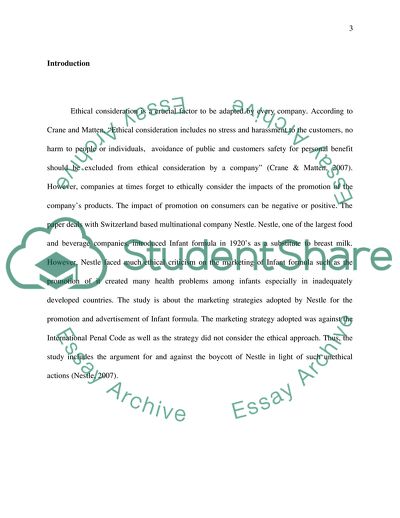Cite this document
(Business Ethics: Nestle and the Ongoing Infant Formula Controversy Case Study - 1, n.d.)
Business Ethics: Nestle and the Ongoing Infant Formula Controversy Case Study - 1. https://studentshare.org/ethics/1761727-business-ethics-nestl-and-the-ongoing-infant-formula-controversy
Business Ethics: Nestle and the Ongoing Infant Formula Controversy Case Study - 1. https://studentshare.org/ethics/1761727-business-ethics-nestl-and-the-ongoing-infant-formula-controversy
(Business Ethics: Nestle and the Ongoing Infant Formula Controversy Case Study - 1)
Business Ethics: Nestle and the Ongoing Infant Formula Controversy Case Study - 1. https://studentshare.org/ethics/1761727-business-ethics-nestl-and-the-ongoing-infant-formula-controversy.
Business Ethics: Nestle and the Ongoing Infant Formula Controversy Case Study - 1. https://studentshare.org/ethics/1761727-business-ethics-nestl-and-the-ongoing-infant-formula-controversy.
“Business Ethics: Nestle and the Ongoing Infant Formula Controversy Case Study - 1”. https://studentshare.org/ethics/1761727-business-ethics-nestl-and-the-ongoing-infant-formula-controversy.


